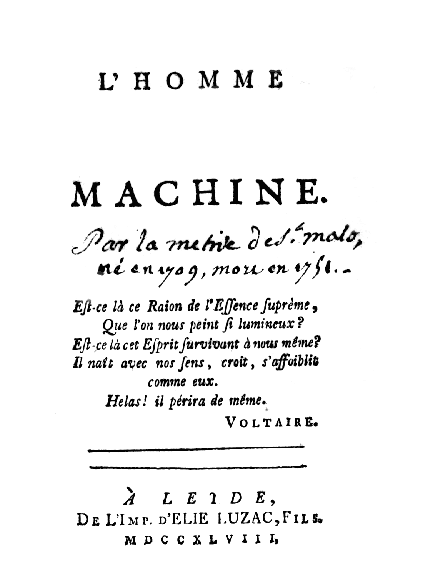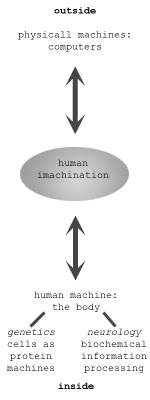




















imachination - further approaches
The notion imachination occurs very seldom- mainly in a French context. The definition of the found concepts differs. Study a collection of further concepts in litterature, humanities or media arts found in books or in the WWW: (more...)
It is a remarkable conception especially in our days. At present the human self-comprehension is confronted with internal and external machines. Outside the individual is challenged with computing machines. Inside it is faced with the biochemical processes of neural structures in the brain and the cellular genetic protein processes. The notion of imachination could help to discover the bizarreness, how an amount of 1013 cells can develop self-consciousness and even a feeling of freedom. |
|
Pornosophie & Imachination
|
 |
theoretical links:
18siecle/LaMettrie/met_hom0.html original French text of "L'Homme Machine" www.cscs.umich.edu/~crshalizi/LaMettrie/ English biography of Julien Offray de La Mettrie and translation of "L'Homme Machine" Dialektische Liebschaften: German critique of "Pornosophie & Imachination" by Thomas Willems |
 |

